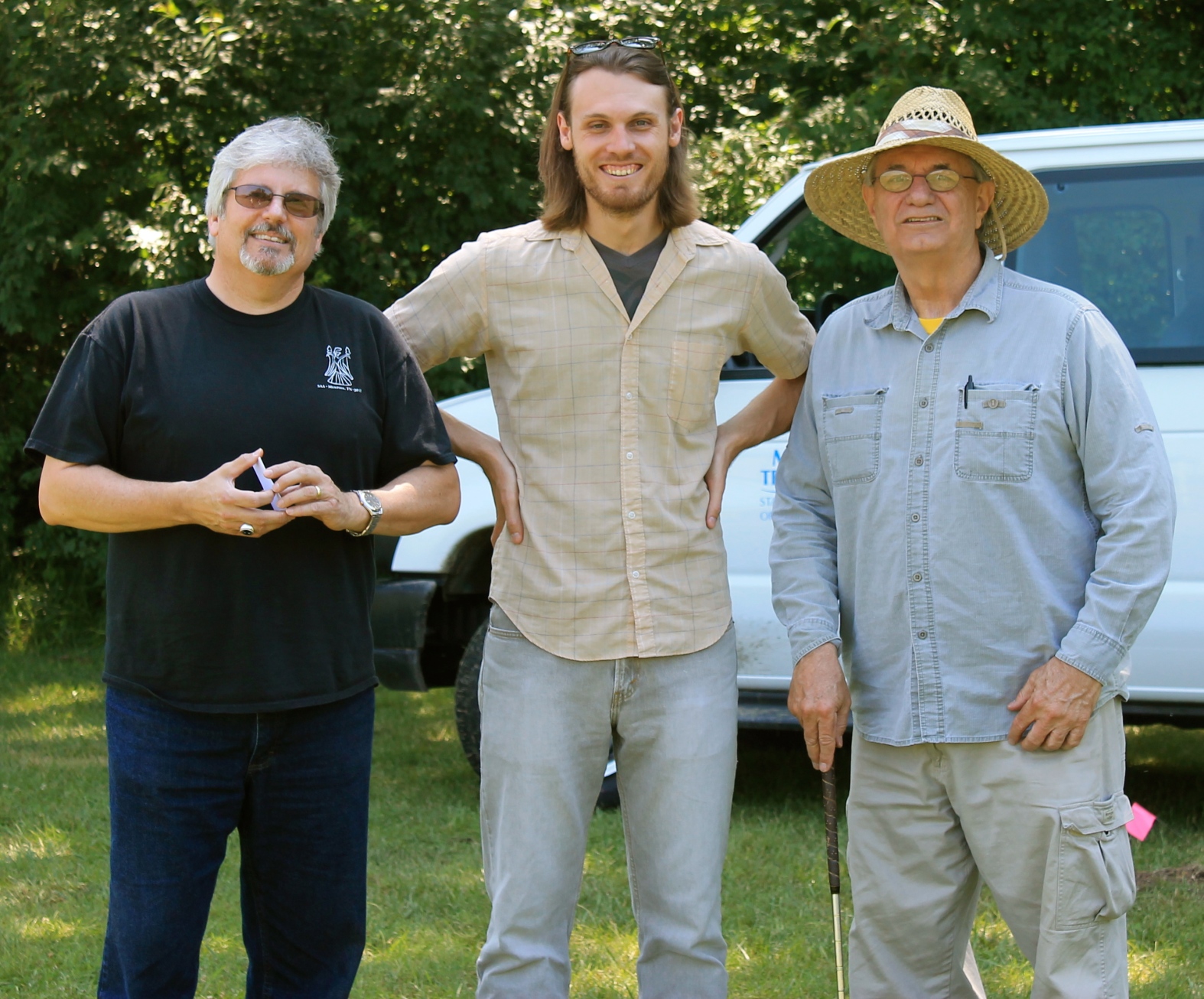Jesse Tune (center below) is the co-director for the Magnolia Valley excavations.

Left to right: Mike Moore (Tennessee State Archaeologist), Jesse Tune (PhD student, Texas A & M University and MTSU Alumnus), John Broster (Prehistoric Archaeologist, Tennessee Division of Archaeology) visited the MTSU MCAP Field School in May 2012.
As a native Tennessean, Jesse Tune has a deep interest in the state’s cultural resources. He graduated from MTSU with a B.S. in Anthropology (2008), American University with a M.A. in Public Anthropology (2010), and is currently a Ph.D. candidate in Anthropology at Texas A&M. To the last two years he has been the Archaeological Lab Manager at the Center for the Study of the First Americans. His research focuses on behavioral adaptations and technologies during the late Pleistocene. He has worked in supervisory positions on grant funded research projects throughout the Southeast.
Tune is an active participant in Tennessee archaeology. He regularly presents papers and posters at the annual CRITA meeting and other professional meetings throughout North America, and gives public talks through local interest groups such as the Middle Cumberland Archaeological Society and the Williamson County Historical Society. He is currently conducting long-term research in the state related to transitions in lithic technologies during the Pleistocene.
Through his involvement in numerous public archaeology projects, Tune advocates for greater awareness of cultural resources while teaching professional standards and ethical responsibility in research. He strongly believes in the value of public awareness and outreach. While working at the Topper site, in South Carolina, he led weeklong lithic analysis workshops for public volunteers. At American University he worked on educational displays for installation in public libraries. He currently serves as a graduate student mentor for undergraduate research at Texas A&M. He also coordinates volunteer participation in research projects at Texas A&M.
His dissertation research focuses on lithic technology and behavioral adaptations related to the Pleistocene-Holocene transition in the Southeastern United States. He is studying the evolution of biface technology throughout the Clovis-Cumberland-Dalton succession to investigate the potential effects of ecological change and colonization processes on technology and behavioral adaptations.
